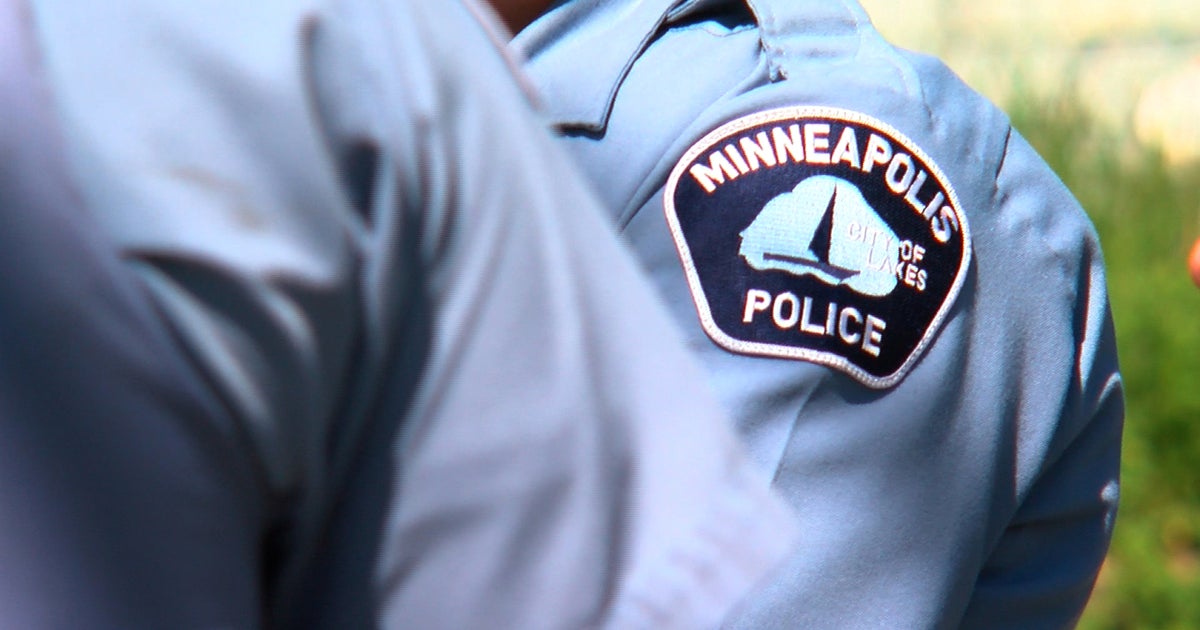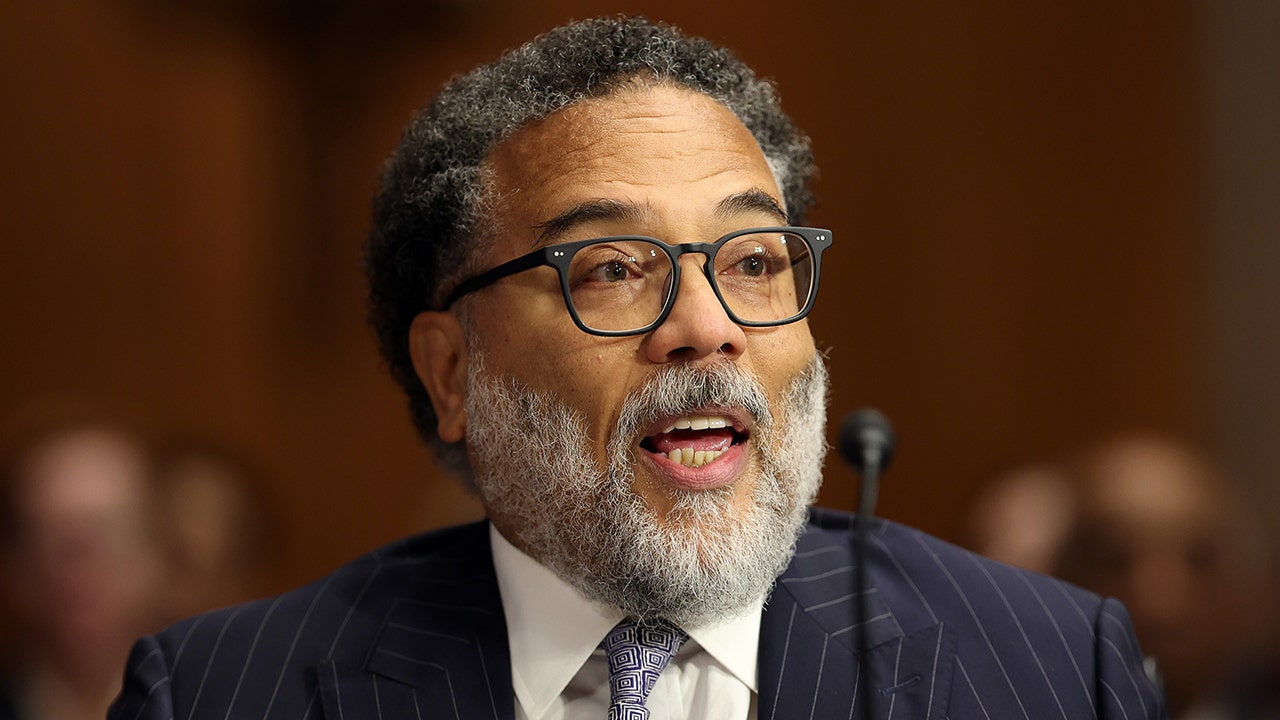Education
Opinion | State’s ‘Misguided Takeover’ of Houston Schools

To the Editor:
Re “Anger Rises in Houston Over the State’s Schools Takeover” (news article, Aug. 13):
The politically motivated and downright misguided takeover of the Houston Independent School District sets a deplorable example for struggling school districts nationwide.
The solution to poorly performing schools should not be to close libraries and force misbehaving students to watch videos in those repurposed spaces. It should be to expand libraries into centers of learning and to recruit dynamic educators who can, through their passion and skills, engage students who are acting out for a reason: because they’ve been underserved and shortchanged.
To place them in closed libraries and force them to watch videos of their classes only confirms for those students that they’re troublemakers and that reading lacks value. A punitive approach will not work.
Superintendent Mike Miles, a former Army ranger “who has no official certification,” is better suited to run an Army base, not schools. His plan to compensate teachers for improved scores on standardized tests is also imprudent, for such tests provide a limited measure of students’ aptitude, are often biased and narrow the scope of classroom instruction.
Assessment of student understanding and skills must be more comprehensive, using a wider range of measures, such as performance-based and authentic evaluations that mirror real-life situations.
The new state-run administration’s plan to shift “time-consuming tasks” is also unwise. Staff members who do not teach classes should not be the ones grading work or writing lesson plans. Teachers are the only ones equipped to grade work and write lesson plans. It’s part of their job, however laborious those tasks may be.
Gov. Greg Abbott’s takeover of the Houston Independent School District may be radical, but it’s clearly political and inequitable. And it won’t work.
Gary J. Whitehead
Tenafly, N.J.
The writer is a high school English teacher.
To the Editor:
Mike Miles, the new superintendent of schools, plans to address the achievement gaps between Houston students and those in the rest of the state by focusing on improving reading and math scores. His strategy includes the elimination of a number of school libraries. If that isn’t counterintuitive, I’m not sure what is!
Perhaps instead of prioritizing standardized test scores, Mr. Miles should spend a few minutes talking to one of the librarians he is laying off about how they instill a love of reading in children.
Eve Wolfsohn
New York
The writer is a school librarian.
To the Editor:
Two things stand out in this article.
First, far-right politicians in Texas have decided that if you can’t remove books from school libraries, you can close the libraries to achieve the same result.
Second, far-right politicians preach parental empowerment and control of schools until that empowerment conflicts with the far-right agenda. In this case the governor replaced the elected school board and administrators who didn’t support his conservative vision of education.
Greg Vouros
Seattle
A Trump Plea Deal, to End This Nightmare?
To the Editor:
I am a proud liberal Democrat and one of those Harvard Law School graduates Republicans love to hate. Yet as much as I think Donald Trump deserves to spend significant jail time, I harbor serious doubts about what it will take to get there. The country and Mr. Trump himself might be best served by a plea deal, if that is even possible.
The country badly needs to be rid of Mr. Trump and Trumpism. The Republican Party badly needs a restart. And even Mr. Trump must now realize the likelihood that one of the impending trials could well result in jail time. There’s nothing like the thought of a jail cell to focus the mind.
We can expect years of little else in the press — years of appeals and most likely an appeal to a Republican-dominated Supreme Court on the meaning of free speech. America needs less of this, not more.
Is a plea deal possible? Normally prosecutors would insist on an admission of guilt. But we could settle for less to be rid of this constant and continual stain on our national and international reputation as well as a divided public and a paralyzed national politics.
I would settle for an admission of responsibility for inappropriate actions and inactions, a bar from seeking political office, and home confinement. It’s not adequate, but it could be enough. Otherwise, the national consensus could crack, if it has not already done so, and that’s not good for anyone.
It’s a divisive and a dangerous time and needs to end. This could be the quickest way.
David Love
Newton Centre, Mass.
On Maui, Greed Amid Tragedy
To the Editor:
We’ve all heard the term ambulance chasers, referring to unsavory personal injury lawyers who hover at accident scenes waiting to find victims to represent at the worst possible times. Apparently a similar occurrence is happening in Lahaina on the island of Maui, with a slight difference. Instead of lawyers, repugnant realtors and developers are drooling over the possible opportunity to buy property from victims of the tragic firestorm that reduced this historic town to ashes.
Is it any wonder that the locals are not asking but demanding that these leeches leave? If these situations aren’t nauseating and cruel, what is? With more than 100 dead and more than a thousand still missing, the prediction by some bureaucrats that Lahaina can be rebuilt in six months is downright laughable, if not so sad.
Donate to the proper charities and then leave the folks alone, to search for the living and to grieve the dead, as they live one day at a time. I would imagine that the word rebuild is at this juncture far from residents’ minds. Lahaina Strong.
Bruce G. Levitta
Phoenix
The writer is a former police investigator on the island of Oahu.
Death on a Mountain
Guiding clients on big mountains, and especially K2, almost has a “Lord of the Flies” meets “Bonfire of the Vanities” edge to it.
It’s one thing for clients to accept the risks and their fate if things go sideways, but it’s another when the people who get them there are literally stepped over as they lie dying and sacrificed so that the client’s prized summit can be another notch in their belt.
Jon Heshka
Kamloops, British Columbia
The writer is an associate professor and co-chair of the adventure studies department at Thompson Rivers University.
Camp Memories
To the Editor:
Re “The Fleeting Magic of Summer Camp,” by Josephine Sittenfeld (Opinion guest essay, Aug. 13):
Ms. Sittenfeld’s camp photographs made me remember the stinky sneakers, the swimming hole, picnics in a country graveyard, the bottle of ketchup consumed by six omnivores at every table during every meal, the smell of canvas tents, the sway of my bunk bed, 70 years later.
What a treat! Thank you, Ms. Sittenfeld.
Eleanor Sterling
Santa Barbara, Calif.

Education
Video: Several Killed in Wisconsin School Shooting, Including Juvenile Suspect

new video loaded: Several Killed in Wisconsin School Shooting, Including Juvenile Suspect
transcript
transcript
Several Killed in Wisconsin School Shooting, Including Juvenile Suspect
The police responded to a shooting at a private Christian school in Madison, Wis., on Monday.
-
Around 10:57 a.m., our officers were responding to a call of an active shooter at the Abundant Life Christian School here in Madison. When officers arrived, they found multiple victims suffering from gunshot wounds. Officers located a juvenile who they believe was responsible for this deceased in the building. I’m feeling a little dismayed now, so close to Christmas. Every child, every person in that building is a victim and will be a victim forever. These types of trauma don’t just go away.
Recent episodes in Guns & Gun Violence
Education
Video: Biden Apologizes for U.S. Mistreatment of Native American Children

new video loaded: Biden Apologizes for U.S. Mistreatment of Native American Children
transcript
transcript
Biden Apologizes for U.S. Mistreatment of Native American Children
President Biden offered a formal apology on Friday on behalf of the U.S. government for the abuse of Native American children from the early 1800s to the late 1960s.
-
The Federal government has never, never formally apologized for what happened until today. I formally apologize. It’s long, long, long overdue. Quite frankly, there’s no excuse that this apology took 50 years to make. I know no apology can or will make up for what was lost during the darkness of the federal boarding school policy. But today, we’re finally moving forward into the light.
Recent episodes in Politics
Education
Video: Los Angeles Bus Hijacked at Gunpoint

new video loaded: Los Angeles Bus Hijacked at Gunpoint
transcript
transcript
Los Angeles Bus Hijacked at Gunpoint
The person suspected of hijacking a bus which killed one person, was taken into custody after an hourlong pursuit by the Los Angeles Police Department early Wednesday morning.
-
“Get him.”
Recent episodes in Guns & Gun Violence
-

 Business7 days ago
Business7 days agoThese are the top 7 issues facing the struggling restaurant industry in 2025
-

 Culture7 days ago
Culture7 days agoThe 25 worst losses in college football history, including Baylor’s 2024 entry at Colorado
-

 Sports6 days ago
Sports6 days agoThe top out-of-contract players available as free transfers: Kimmich, De Bruyne, Van Dijk…
-

 Politics5 days ago
Politics5 days agoNew Orleans attacker had 'remote detonator' for explosives in French Quarter, Biden says
-

 Politics5 days ago
Politics5 days agoCarter's judicial picks reshaped the federal bench across the country
-

 Politics3 days ago
Politics3 days agoWho Are the Recipients of the Presidential Medal of Freedom?
-

 Health2 days ago
Health2 days agoOzempic ‘microdosing’ is the new weight-loss trend: Should you try it?
-

 World7 days ago
World7 days agoIvory Coast says French troops to leave country after decades














